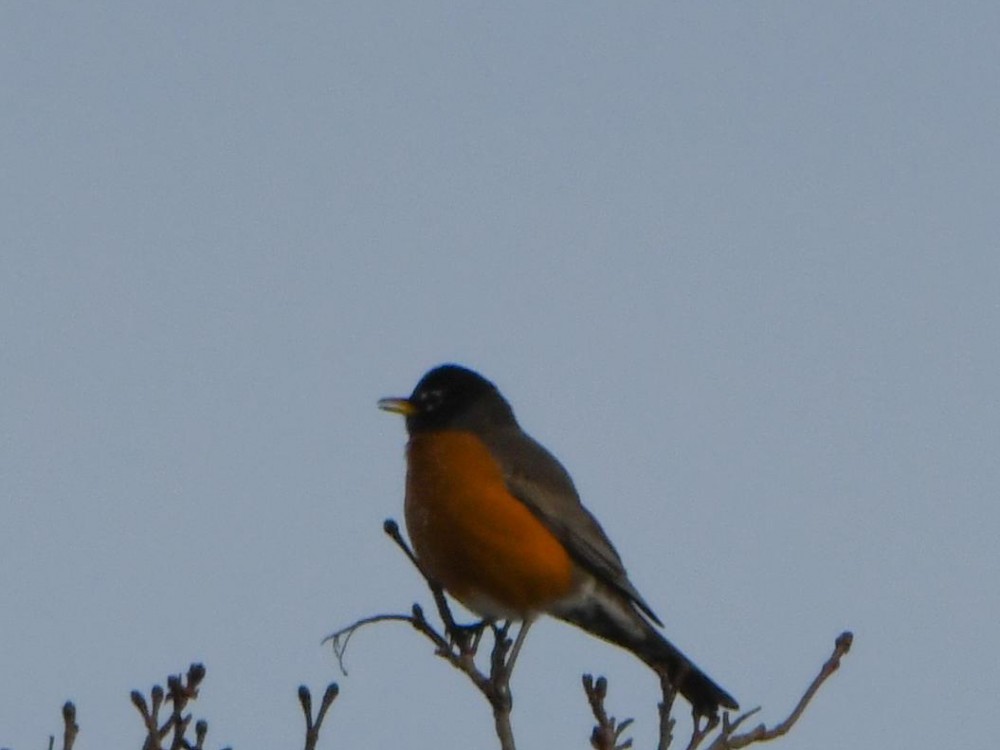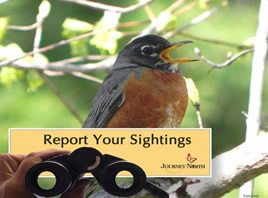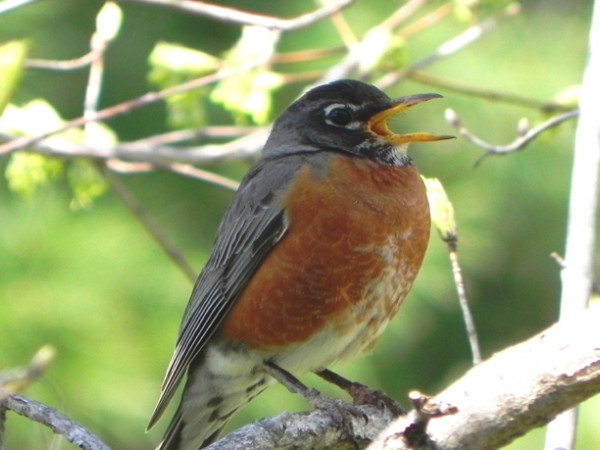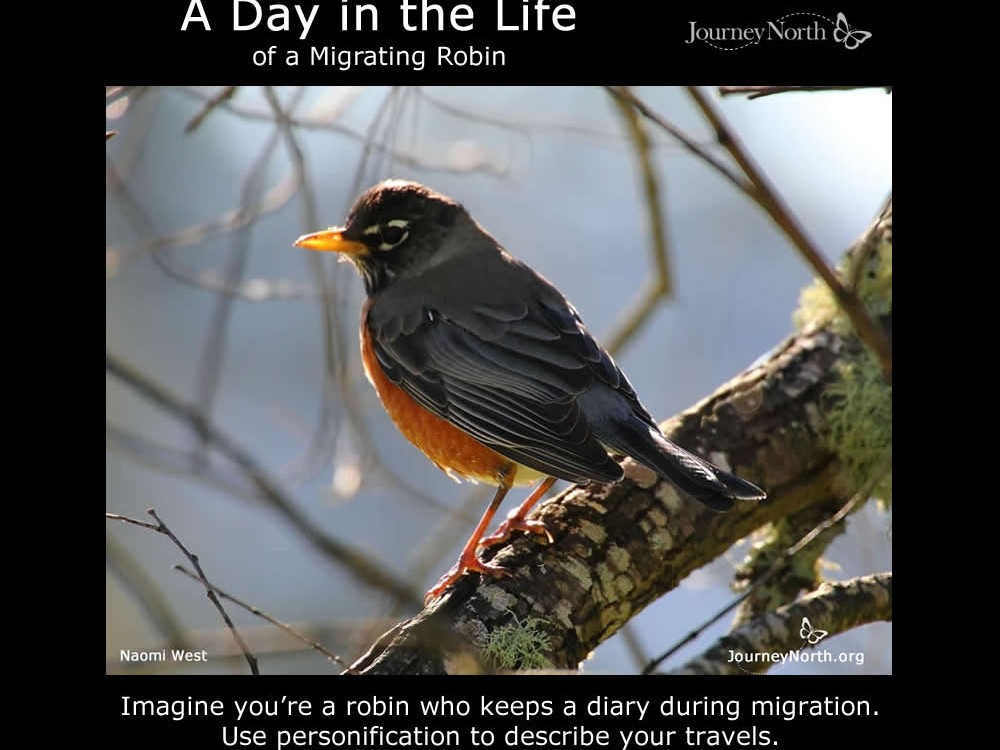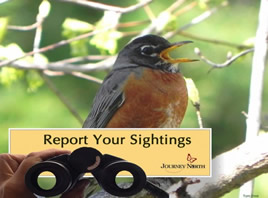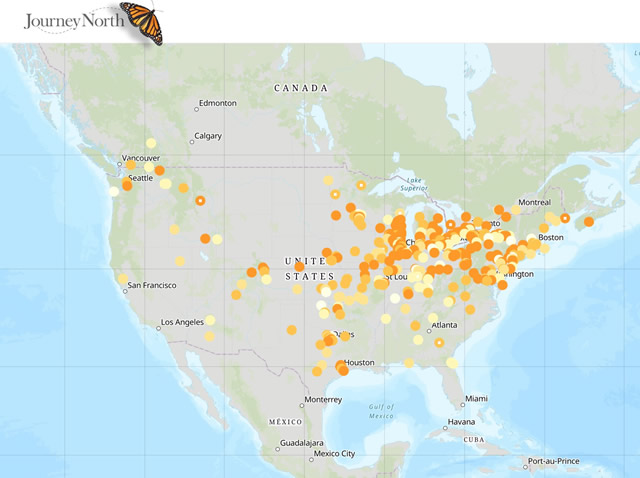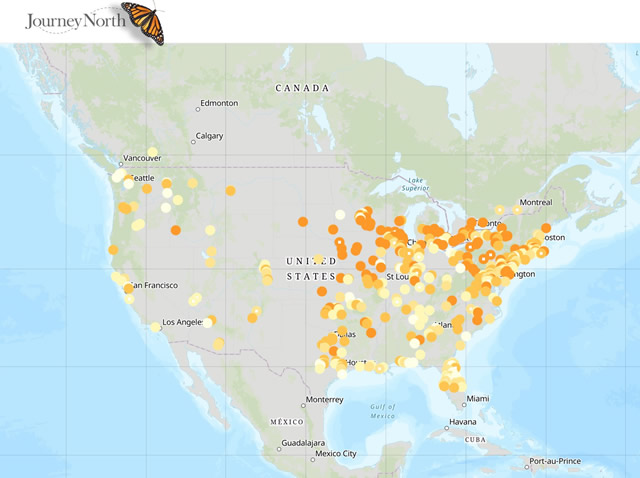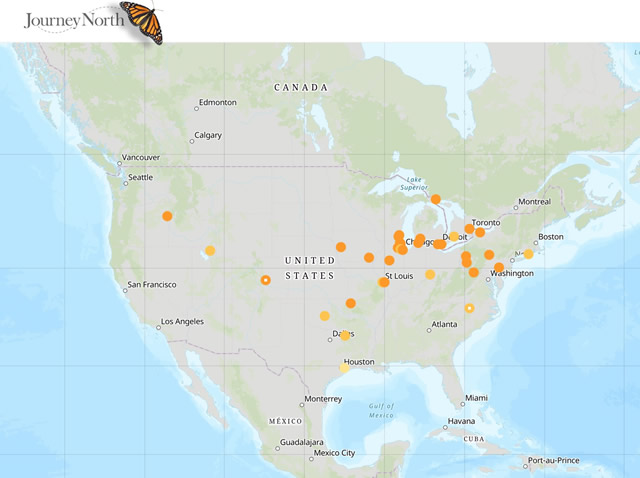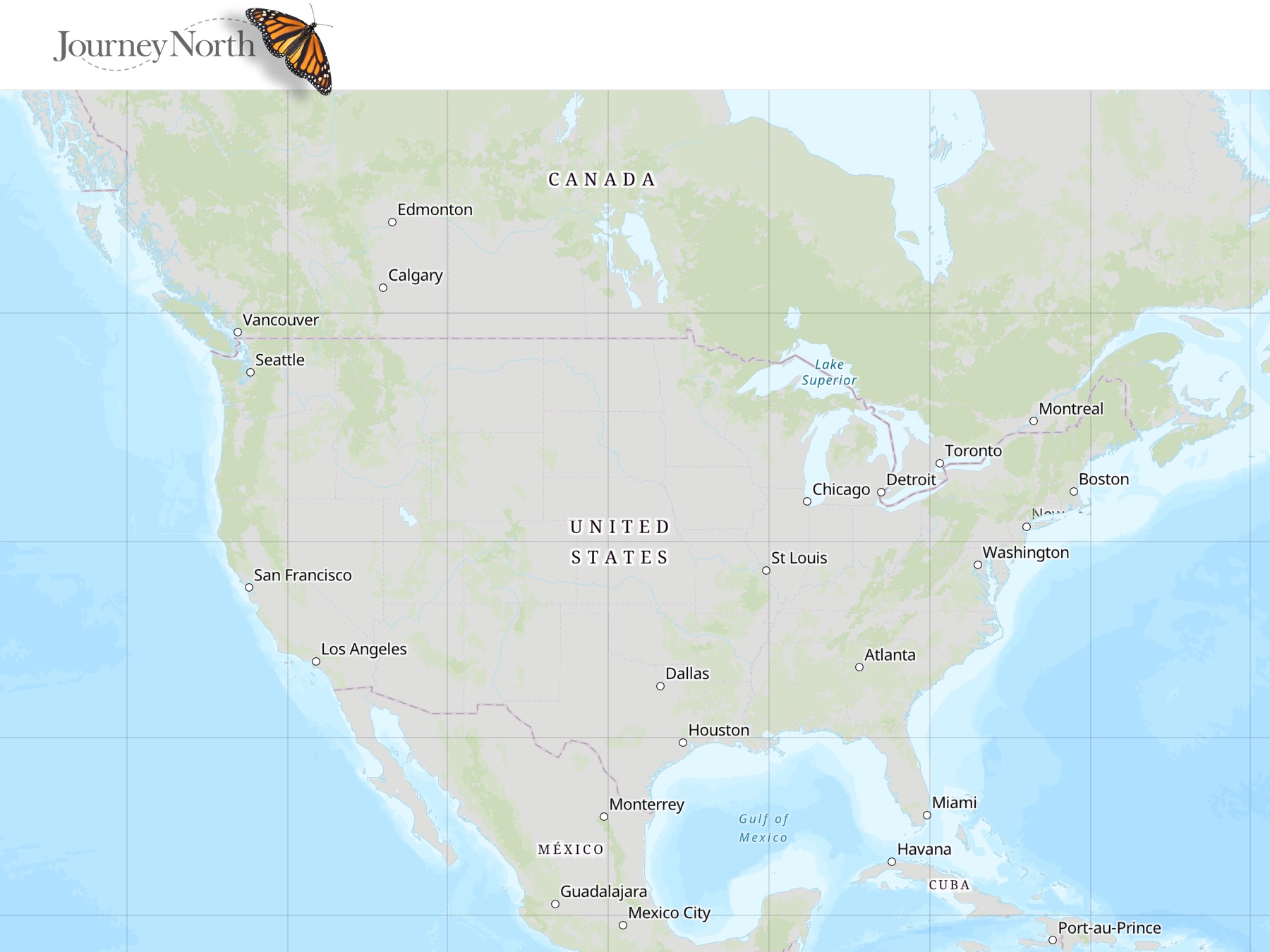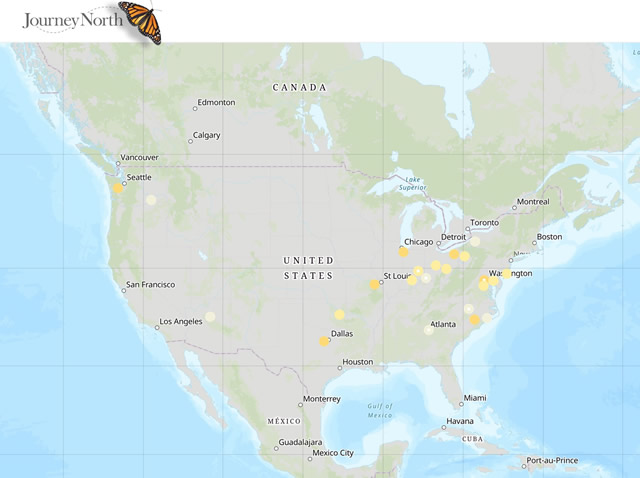Robin Migration Kicks into Full Gear
March is the peak month for robin migration. Increasing day length triggers their internal clock and urges them to head north with the breeding season fast approaching. Sightings are on the rise with winter fading away and spring knocking on the door.
A Flurry of Activity
Across the United States and Canada, Journey North citizen scientists are observing an influx of robins as they start to move north and settle into their breeding grounds. As the days get longer and snow cover melts away, watch for robins to switch from their winter diet of berries to their spring diet of earthworms. Report what changes you are seeing and hearing.
From Halifax, Nova Scotia: Mary said, “an extraordinary number of large, fat robins have been sighted for the last 2 weeks all over Halifax County. Many reporting that they have never seen robins at this time of year. I have been recording their visits to my Holly berries since 2013, always in February. This year they are indeed large and fat. The berry producing trees and shrubs were plentiful in the fall. They have been bobbing all over especially on areas where the snow has melted and the ground is open.” (02/20/2020)
From Wheatland, IA: Toshia, “heard a Robin singing around 7:00 a.m. on 2/21/2020. I heard the Robin's ‘True Song.’ I couldn't locate the Robin, but I sure could hear it. I love that song, I always know spring is close, and here in Iowa, we can't wait for spring.” (02/21/2020)
From Gause, TX: Donna said she was, “pulling weeds from winter pollinator garden and there were earth worms just under the top layer of soil everywhere.” (02/24/2020)
From Holden, MA: Susan shared, “this is our first sighting! We usually have a few individuals on our lawn before a bigger group, but these descended together. There were 9 males and 6 females. We're in a suburban area, with a lawn that abuts the road, and some bushes. The robins were eating from our Holly bush. It has leaves and berries. We couldn't tell which they were eating, and every time we tried to get close, they flew down onto the lawn. They were here for about 30 minutes starting at 11 am EST. We kept our eyes out for the rest of the day but they didn't return. They've successfully nested here before so we're hoping it will happen again!” (02/27/2020)
From Kalama, WA: Linda observed, “first wave of Robins seen in my yard today! My dog notified me by barking out the window at 7-10 of them!” (02/27/2020)
From New Smyrna Beach, FL: Vikki noted, “it has been a very long time since I last had seen a Robin. This morning out of nowhere one flies in and lands and just begins feeding. Visited for about 10 minutes and gradually flew off.” (03/03/2020)
Help Us Track American Robins
Use the spring checklist to learn what to watch for this spring—wintering robins, first robins, first signing robins, waves of robins, first earthworms, and nesting behavior.
Help Us Track American Robin First Territorial Song
Across the continent, male robins arrive first on breeding grounds and begin to defend their nesting grounds by singing (and sometimes fighting). With spring just a few weeks away, get ready now to report the song of these male robins by listening to the robin’s territorial song (which is different from other common vocalizations). Tracking the first songs of male robins is a reliable way to predict when the wave of spring migration reaches you.
- Watch for a clear south to north progression on the robin song map.
- Learn to distinguish the True Song from other common vocalizations. Note that some robins may produce the first songs on their wintering grounds, but the vast majority wait until they are on breeding and nesting grounds.

